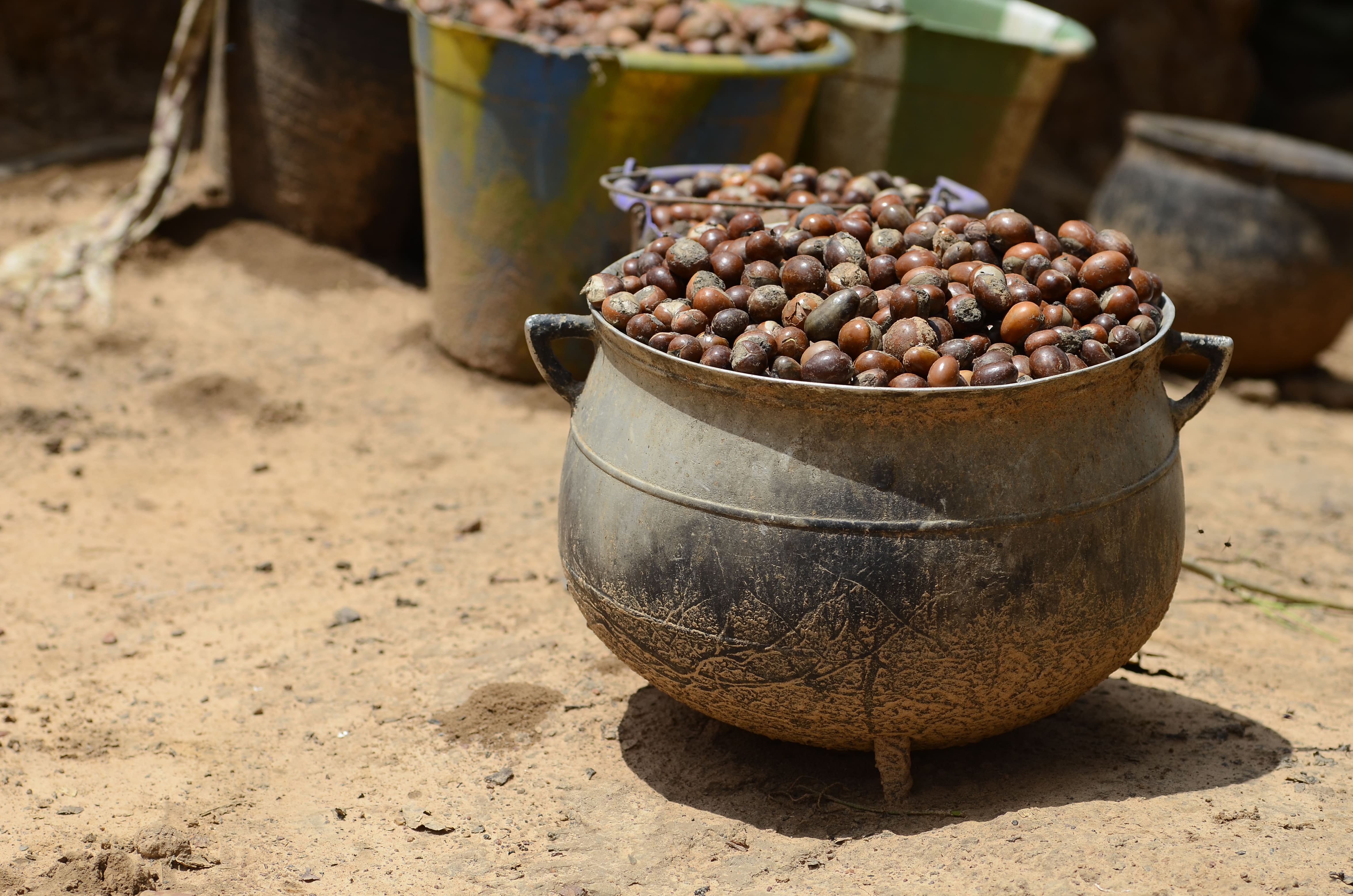High Potential for Exporting Nigerian Shea Butter
Shea butter is used worldwide for its various uses in the food industry as well as in the cosmetics sector, with a market value estimated to reach at least USD 3B in 2025. Within Nigeria, there are some of the largest concentrations of shea trees in the world as the plants are native to the country, making it the biggest shea nut producer at 263K MT in 2018. West African shea butter, including Nigerian shea butter, is also known especially for its high concentration of vitamin A.
Nigerian Shea Production and Prices in 2020
The season for Nigerian shea nuts ranges from approximately July to November, for which the moisture level is highest at the beginning of the season. Production for this season has just commenced and is yet to be determined, but the harvest volume is estimated to be approximately 500K MT, after another good season in 2019. In terms of prices, shea nut prices tend to be more volatile while they are less so for shea butter. Currently, there is a rise in the price of shea butter but a drop in the price of nuts, with increasing global demand for the butter driving up the prices.

The Nigerian Shea Industry
Shea nuts in Nigeria are commissioned before the season starts from women in local communities, who are the main actors in the production of the nuts. There are two types of refining processes, the first of which transforms the raw nuts into the nutty crude shea butter and the latter into refined butter, which takes an odorless form. While there are international buyers who directly import the nuts from Nigeria, in terms of the butter, most of the processing is conducted in Nigeria, which is a labor-intensive process. While some importers prefer crude butter others will purchase the refined type which has a significantly higher value.
Once the products are processed and exported, it is used by the end buyers as shortening in cooking or by cosmetics companies that add it to their products for moisturizing purposes. Compared to the cosmetics industry, however, processed shea butter is more prevalently used in the food industry, taking up 90% of total production. Most of the shea nuts in Nigeria are exported, with only about 20% of the products consumed domestically. The quantity available greatly depends on large conglomerates in the market that purchase almost 50% of the total volume.

Eyes Set on the Global Market
While there are hurdles to overcome in terms of exporting, there is great potential for the country to expand on its export markets. In fact, quite a portion of the current production is already traded across to Benin, Togo, and Ghana. One of the biggest markets for shea butter is Europe, with top export destinations thought to be France, Sweden, and Italy, and especially the Netherlands where most European exports go through.
European consumption of vegetable oils between 2011 and 2018 increased by 57% in terms of value and there has been a constant demand for vegetable oil and fats within the region. Approximately 250K MT of shea products are estimated to be exported yearly to Europe. Healthier vegetable oils and fats have also been growing in interest in Europe as well as for the global market, for which shea butter meets the growing demand compared to less healthy counterparts such as palm oil. In addition, the fact that the production of shea butter is more environmentally friendly, not requiring deforestation of the production area, also makes it more appealing to consumers.

Some challenges the sector faces include the fact that only around 50% of the nuts in Nigeria are utilized for exporting purposes and processing, and much of the products are left unused in the wild. The Nigerian shea industry, however, has a lot of potential for development especially as the sector becomes more digitalized, and is expecting breakthroughs in expanding to markets beyond Europe which exhibits the most potential for growth such as Asia and North America.
